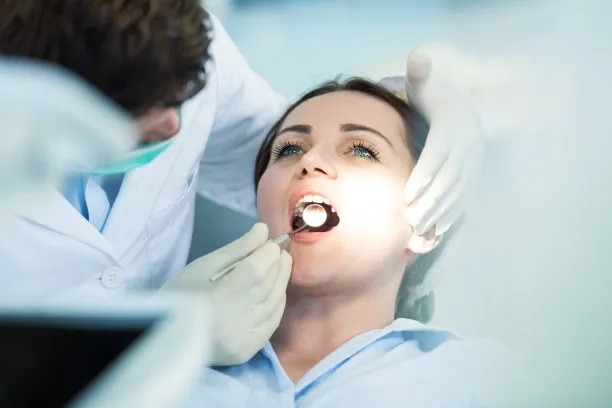Essential Guidelines to Follow After Receiving a Dental Filling for Optimal Oral Health and Recovery
Summary: Receiving a dental filling is a common procedure aimed at restoring teeth affected by decay or damage. However, proper aftercare is essential for optimal healing and long-term oral health. This article outlines essential guidelines to follow after receiving a dental filling. We will delve into four key aspects: managing discomfort, dietary adjustments, maintaining oral hygiene, and scheduling follow-up appointments. Each of these areas plays a significant role in ensuring the success of the filling and promoting overall dental health.
1. Managing Discomfort Post-Filling

After receiving a dental filling, its typical to experience some level of discomfort or sensitivity in the affected tooth. To manage this discomfort, over-the-counter pain relievers such as ibuprofen or acetaminophen can be effective. These medications not only reduce pain but also minimize inflammation.
Additionally, it is recommended to avoid the use of the filled tooth for chewing until the anesthesia has completely worn off. This precaution helps prevent accidental biting of the cheek or tongue, reducing the risk of further complications or discomfort.
While some sensitivity is normal in the days following the procedure, persistent pain could indicate an issue with the filling. If discomfort continues beyond a few days, it is advisable to contact your dentist for further evaluation.
2. Dietary Adjustments for Optimal Recovery
Diet plays a crucial role in the recovery process following a dental filling. Initially, it is wise to avoid hard, chewy, or sticky foods that could stress the newly filled tooth. Foods like nuts, hard candies, or tough meats should be set aside during the first few days of recovery.
Instead, focus on a soft diet comprising items such as yogurt, mashed potatoes, and smoothies. These foods are gentle on the teeth and unlikely to cause discomfort or dislodge the filling.
Moreover, it’s essential to stay away from extremely hot or cold foods and beverages, as the filled tooth may be particularly sensitive to temperature changes. Gradually reintroduce different food types after a few days, observing how your tooth responds to the adjustments.
3. Importance of Maintaining Oral Hygiene
Maintaining good oral hygiene is vital after receiving a dental filling. Brush your teeth gently but thoroughly, making sure to include the filled tooth in your cleaning routine. It is crucial to use a soft-bristled toothbrush to prevent any irritation to the surrounding gums.
Flossing is equally important, but care must be taken around the filling. Gently slide the floss between your teeth without snapping or pulling hard, which could disturb the filling. Regular flossing helps prevent future cavities in nearby teeth that could undermine the success of the filling.
Additionally, consider using an antiseptic mouthwash to help reduce bacteria in the mouth and keep the filling area clean. This practice can significantly contribute to overall oral health and speed up recovery.
4. Scheduling Follow-Up Appointments
Post-procedure follow-up appointments play a critical role in ensuring the long-term success of your dental filling. Your dentist will assess how well the filling is holding up and whether there are any underlying issues that need to be addressed. Regular visits can help catch any potential problems early.
It is generally recommended to schedule a follow-up appointment for about two weeks after the filling procedure. During this visit, your dentist can check for any signs of decay around the filling and confirm that everything is functioning correctly.
Moreover, the follow-up provides an excellent opportunity to discuss any concerns you may have and ask questions about your oral health. Engaging in open communication with your dentist will help ensure that you are on the right track for optimal recovery and maintenance of your dental health.
Summary:
Proper aftercare following a dental filling is crucial for effective recovery and long-term oral health. Addressing discomfort, making necessary dietary adjustments, maintaining oral hygiene, and scheduling follow-up appointments are all essential steps in the process. Together, these guidelines contribute to a successful outcome and help prevent future dental issues.
This article is compiled by Vickong Dental and the content is for reference only.



